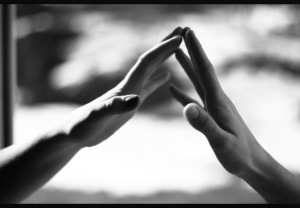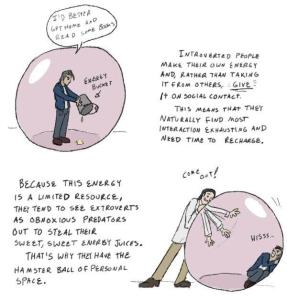Look, I get it, all right? I have cute aggression, too. I can’t resist those chubby thighs, those chunky cheeks, the little Michelin tire rolls ‘round ankles, bellies, and wrists. I mean, let’s just face it: skinny babies just aren’t as cute as the rollie-pollie kind.

But so help me God, if one more person calls my baby a “chunky monkey”, or squeals with joy while pinching her delicious little rolls between their forefinger and thumb, I’m going to lose it. God bless my girl friend who heard this from me recently after telling me she, “loved Moira’s chunk.” “Don’t call her that!” I said, a little snappily. My girl friend was chagrined, but listened kindly as I tried to dismantle my aversion and explain my reaction. Yes, Moira is chubby. She is rounded in all of the delightful ways a healthy young child should be. And unfortunately, I am a product of a society that equates “chubby” with “fat” and tells us that fat is just about the worst thing a person can be, so I’m a little sensitive to comments about my child’s looks. Until “fat” ceases to be synonymous with “lazy”, “unhealthy”, and “frumpy”; until “fat” is no longer antonymic with words like “beautiful”, “healthy”, and “attractive” — don’t call my baby fat. In fact, why not praise her for all other salient reasons for which she ought to be praised, rather than her looks? Her intelligence, her kindness, her joyfullness, her curiosity? Praise her being, not her body! But, that’s another blog post.
Before Moira was born, I made a pact with myself that she was going to grow up different than I did. That promise entailed a great many things, but chief among them were the lessons I learned about food, body image, and self-esteem. After I learned I was having a girl, I began to anticipate what an immense responsibility I would have in addition to being this child’s mother — I was going to be responsible for stewarding this perfect little girl through a world that would gladly strip her down to flesh and bones, both metaphorically and in body, to meet their idealized and unrealistic standards. I was going to have to fight for her right to be and do everything that made her heart feel right, damned what the world thought, because who is going to teach a girl how to be a healthy, happy woman, except her mother? Since she was born over 18 months ago, I’ve been increasingly defensive about my daughter’s body. It began with the acknowledgment of my own insecurities and a solemn promise to never share them with Moira. I can directly trace my own insecurities back to observations of my own mother, who would constantly poke, prod, and abuse herself for her plump physique. I recognize that if I don’t learn to put a cork in it (or, better, actually start loving myself), I’ll be hurting my daughter. As far back as I can remember, I was concerned about body image. I distinctly recall being no more than seven years old (SEVEN!) and sucking my tummy in as I walked past boys in the supermarket because I wanted to seem appealing to them. But why? Where did I learn that behavior, those values? Yes, I was rounder, less lithe, than the other girls in my grade school, but I definitely wasn’t obese by any stretch of the imagination. So tell me how my self-image became so tarnished? My mother, I think, failed to realize how her example would affect me. Every time she talked down to herself, admired another woman’s thin athletic build while simultaneously degrading her own, I listened and incorporated her perspectives into my own world view. Every time she went on a crash diet, eschewing meals for “milkshakes” and killing herself on a Stairmaster for hours into the evening, I watched and I learned. When she would criticize herself in photos and compare her thighs to my grandmother’s while sighing mournfully, every time she took me with her to shop for clothes and berated herself in the dressing room, I logged it away for later use against myself.

There are probably many more reasons for my low self-esteem and my lifetime struggles with weight. I wasn’t raised to be a healthy eater. I wasn’t raised to be especially active. I had a negative self-image from very early on, but as I got a little older and started to fill out in ways that weren’t considered healthy, I was subjected to a lot of criticism, both at home and at school. I don’t recall my pediatrician ever commenting that I was overweight, but I remember my parents scolding me for what I ate, and when, and how much. Our home was emotionally fraught and sometimes violent, and I began eating as a way to self-soothe. I would binge eat and hide it from my parents, and they would become effusively angry when they busted me (Tip: if your child is an emotional-eater, there are way better ways to confront that issue than shaming them about it. See “opposite of intended effect”.) Somehow, it never occurred to them to change their own habits in order to set an example for me to follow. People aren’t born thinking that being fat is a bad thing — we have to be taught to hate ourselves or each other, and I definitely was. I was taught by two adults who didn’t much care for their own bodies how to hate my own. I don’t think they ever considered how their well-intentioned criticism, or their own self-hatred, would influence me. I’m a parent now, and I keep my mother and father’s example close to my heart. Not because I want to follow it, but because I want to avoid it. All of the wrong decisions my parents made, and all of the wrong decisions I later made for myself, I’m using those lessons to concentrate on making the right choices for M. Still, people allow their distorted perceptions of beauty and health standards color their view of our family and even our parenting choices. Yeah, I’m fat — does that mean that my daughter will be, too? No, of course not. I suspect that many people look at me and assume that a.) I’m unhealthy, lazy, irresponsible, etc., and b.) assume that I will graft my flaws on to my daughter. However, nothing could be farther from the truth: my husband and I make very careful, conscientious decisions regarding food and activity choices in order to set her up for life-long health. Note: health, not thinness, because we’ve got our priorities straight. Does she still eat pizza? Sometimes. (“My monkey, my circus”, remember?) You see, I don’t want to take all that I’ve learned about being healthy and run to the other end of the spectrum, counting calories and obsessing over what goes into our bodies. In the end, that attitude would defeat the purpose of what I’m trying to achieve: raising a healthy, intelligent girl who is able to appreciate all things are best in moderation. Regardless of the size of her dress or the number on the scale, she will know that she is beautiful, valuable, and important, even if she does keep her chunky-monkey rolls all the way into adulthood. Eff your beauty standards — those thunder thighs are a family legacy. And we are gorgeous.









